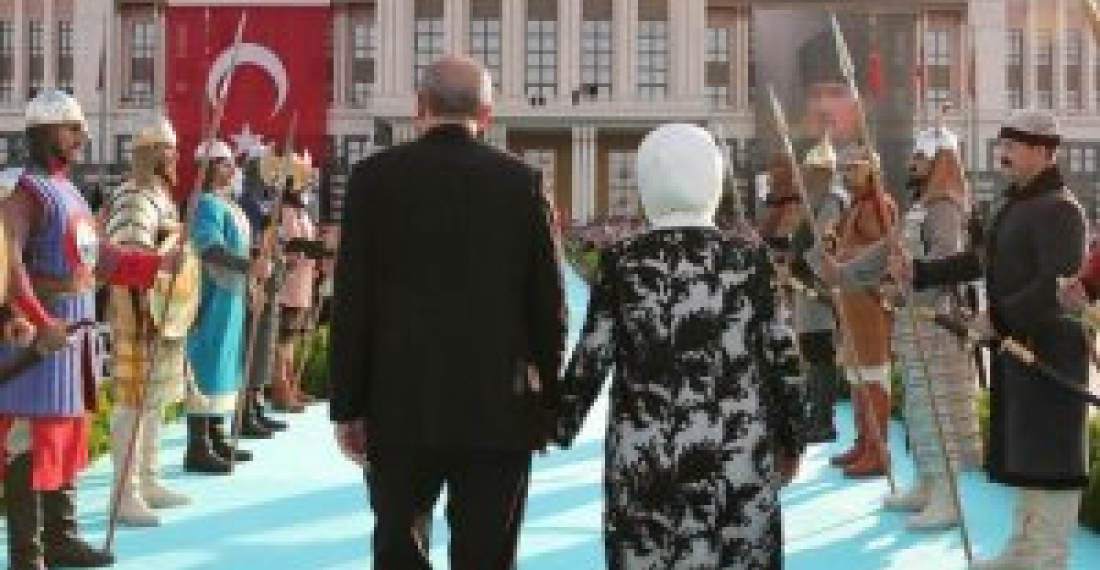President Recip Tayiop Erdogan was sworn in on Monday (9 July) as President of Turkey for the second term. The moment also marked the triggering-in of constitutional changes that transforms Turkey into a presidential republic. Erdogan assumed office immediately afterwards in a colourful ceremony in Ankara full of historical symbolism.
Shortly after the ceremony Erdogan appointed the new government which will now consist of only 16 ministers. Erdogan himself will chair the Cabinet - the post of prime minister has been abolished. In a surprise move, Erdogan appointed the Armed Forces Chief of Staff Hulusi Akar as Minister of Defence. This appointment seems to be an expression of Erdogan's appreciation of Akar's role in the collapse of the attempted coup in July 2016. Among the new cabinet of ministers is also Erdogan's son-in-law, Berat Albyarak, who becomes Treasury and Finance Minister.
“We will try to be valuable for our nation being aware that we are the president of not only those who voted for us but all of our 81 million citizens,” Erdogan told guests during the inauguration ceremony at the presidential complex in Ankara.
Erdogan promised a new era will marked by reforms and renovation. "We build a state structure that produces service, not bureaucracy. Our guide will be a democracy again. It will be the superiority of national will," he added.
He stated that the first visit that he will make will be to Northern Cyprus and Azerbaijan, and on July 11 he will leave for Brussels for NATO summit.
source: commonspace.eu with agencies
photo: President Erdogan and his wife pass by a guard of honour in historical unfoirms as he enters the presidential complex in Ankara after being sworn-in for his second term as president of Turkey






